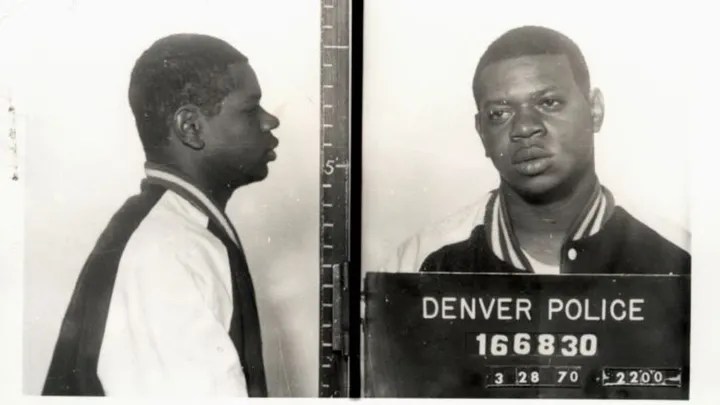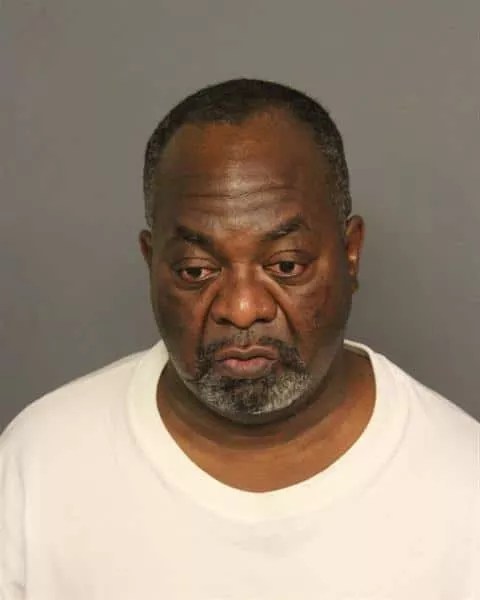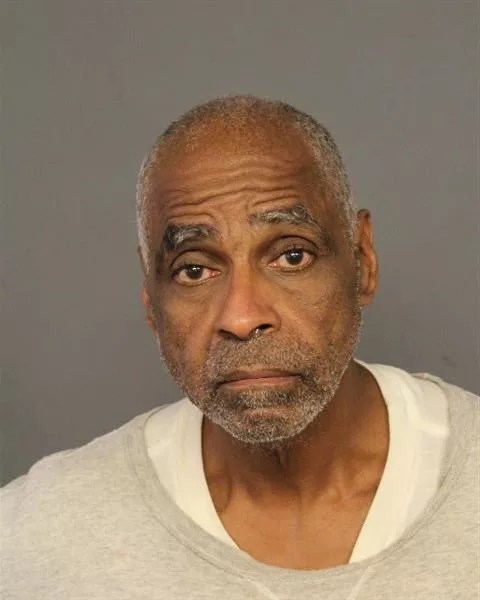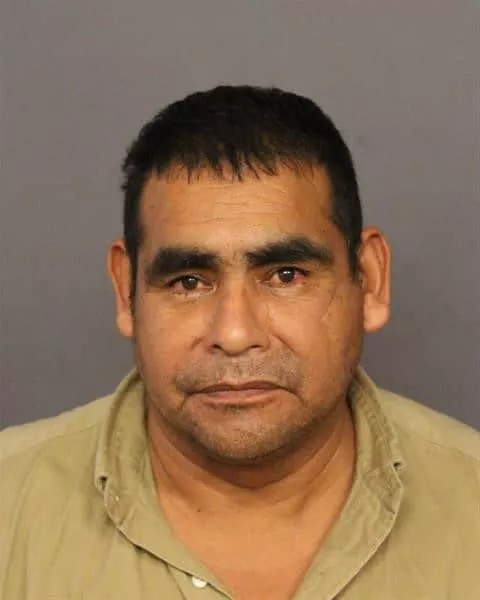
Colorado Bureau of Investigation/Denver Police Department

Audio By Carbonatix
Many Denver crime victims are finally getting justice, decades later.
The Denver Integrated Cold Case Project marked 25 years of operation at the end of 2024, during which officials have re-examined approximately 900 sexual assault and 240 homicide cold cases, using new investigative techniques and modern DNA-testing technology.
The re-investigations resulted in criminal charges in more than 130 cases, according to the Denver Police Department. The project also closed dozens of additional cases by identifying the perpetrators as people who have since died.
“These advancements have resulted in cases being solved that would never have been resolved,” says Dr. Greggory LaBerge, director of the Denver Police Crime Laboratory, who helped create the Cold Case Project in 1999. “We now forge ahead with new evolving methods and a resolve to continue this work indefinitely to seek justice for victims of crime and their families.”
In honor of the project’s 25th anniversary, here is a look at some of the cold cases it has solved:
Case Closed

Joe Ervin
Denver Police Department
Joe Ervin, homicides 1978-1981
The Cold Case Project uncovered a secret serial killer in Joe Ervin, whose genetic genealogy and familial DNA identified him as the suspect in four separate homicides between 1978 and 1981. Ervin was identified in 2022, over forty years after he committed suicide (in 1981) while in custody for fatally shooting Aurora police officer Debra Sue Corr after she attempted to arrest him during a traffic stop.
Investigators connected the four victims, all of whom were women who were stabbed to death, using DNA evidence between 2013 and 2018. Ervin’s remains were exhumed in 2021 to compare his DNA with that from the crime scenes, which determined it was a match.
The victims were Madeleine Furey-Livaudais, 33, of Denver; Dolores Barajas, 53, of Denver; Gwendolyn Harris, 27, of Denver; and Antoinette Parks, 17, of Adams County, who was pregnant at the time of her murder.

Hector Bencomo-Hinojos
Denver District Attorney’s Office
Hector Bencomo-Hinojos, homicide 1981
Thirty-four years after Patricia Beard was killed in her Denver home, Hector Bencomo-Hinojos pleaded guilty to her murder. Bencomo-Hinojos was sentenced to 48 years in prison in 2015 after DNA evidence identified him as Beard’s killer two years earlier. He was already in prison in Pennsylvania when he was named as the suspect in the Denver murder.
Beard, 32, was living in a group home for mentally disabled people when Bencomo-Hinojos broke in through a window and attacked her. He sexually assaulted and strangled her to death, investigators say.
Byron Gay, sexual assaults 1993-1995
Three sexual assaults that occurred throughout Denver between 1993 and 1995 were linked to Byron Gay sixteen years after the first attack. DNA evidence revealed Gay as a serial rapist, who broke into the victims’ homes and attacked them while they were sleeping, investigators say.
Gay was charged in connection to the crimes in 2009 and later sentenced to three consecutive life terms plus 384 years in prison.

Steven Cumberbatch
Denver District Attorney’s Office
Steven Cumberbatch, homicide 1994
Steven Cumberbatch was found guilty of first-degree murder and sentenced to life in prison in 2023 for killing Rita DesJardine. Employees found DesJardine’s body in a Denver motel in 1994, but the investigation into her death yielded little information until 2018, when DNA evidence connected Cumberbatch to the scene.
Additional testing confirmed that Cumberbatch’s palm print matched a print left in blood at the crime scene. DesJardine, 36, died from smothering, investigators found.

Ricky Dawson
Denver District Attorney’s Office
Ricky Dawson, homicide 1996
A Denver woman’s murder may have been the work of a multi-state serial killer, according to findings from the Cold Case Project. Terri Turachak, 35, was discovered dead in her apartment in 1996, killed by strangulation and blunt-force trauma to her head. In 2004, DNA evidence connected Ricky Dawson to the murder.
Dawson was already in prison in Florida for a 2001 sexual assault and homicide. He was also accused of being involved in a homicide in Washington in 2000. After further DNA testing and investigation, Dawson was charged with Turachak’s murder in 2023. He’s next due in court in January 2025.

Crespin Nene-Perez
Denver District Attorney’s Office
Crespin Nene-Perez, homicide 1998
Nearly 24 years after Bonny Baker went missing, her then-boyfriend Crespin Nene-Perez pleaded guilty to her murder. Baker, 47, disappeared from her Denver home in 1998. One year later, her body was discovered in a shallow grave on Navajo tribal grounds, but officials did not know it was her. Baker’s case remained cold until 2012, when the Cold Case Project stepped in. The team identified the remains as belonging to Baker and, in 2013, named Nene-Perez as the suspect in her murder.
Nene-Perez was living in Mexico at the time but was eventually extradited in 2020 to face the charges in Denver. He pleaded guilty to second-degree murder in 2022 and was sentenced to twenty years in prison.
Roberto Valenzuela, sexual assault 1999
In 2016, Roberto Valenzuela was identified as the perpetrator accused of raping a pregnant woman, seventeen years after the 1999 attack. Authorities say the victim was five months pregnant and walking in Denver when Valenzuela offered her a ride. He then allegedly drove her to a church parking lot, hit her in the face and sexually assaulted her. Investigators claim he took the victim to a second location and sexually assaulted her again before she managed to escape.
Valenzuela was charged with kidnapping and sexual assault but took a plea deal for the lesser charges of second-degree assault and attempted sexual assault. He was sentenced to sixteen years in prison.
Cold Case Project
The Denver Integrated Cold Case Project started in 1999 following the creation of the FBI’s national DNA database in 1998 and the emergence of Short Tandem Repeat DNA analysis – the standard practice for analyzing DNA evidence to identify individuals. Denver law enforcement officials led the charge in using these advancements to re-examine cold cases involving DNA evidence.
The project is funded by federal grants, covering DNA testing, employee salaries and travel expenses to interview victims and witnesses. Since 2003, the Cold Case Project has been awarded more than $8 million in grant funding, according to the Denver Police Department.
“The Integrated Cold Case Project has made a significant difference in Denver over the last 25 years,” says Denver District Attorney Beth McCann. “There is no question in my mind that, as the technology advances, the project will have even more of an impact in the future.”
The project is currently using genetic genealogy to investigate more than twenty sexual assault and homicide cases dating back to the 1980s, according to the Denver Police Department.
But even with the project’s success, there are still hundreds of cases waiting to be solved. There are 772 homicide cold cases open in Denver dating back to 1970, according to the Colorado Bureau of Investigation database. Police say they need the community’s help to solve them.
“In addition to the forensic investigation tools and methods, the community can play a significant role in solving violent crime cases – whether a cold case or a crime that happened more recently,” says Denver Police Chief Ron Thomas. “I encourage community members to partner with us by providing tips to keep our community safe by holding offenders accountable.”
Anyone with information about crimes can call the police department at 720-913-2000 or the Crime Stoppers Tip Line at 720-913-7867; tipsters can remain anonymous and may receive a reward of up to $2,000.